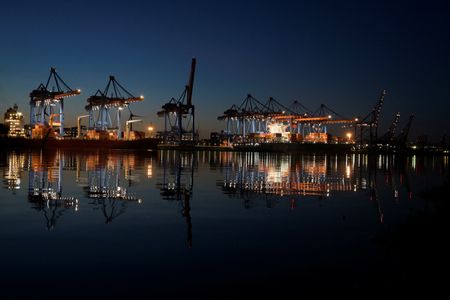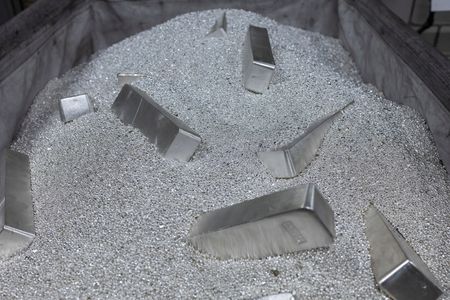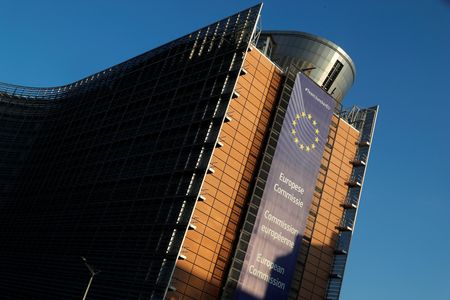FRANKFURT (Reuters) -Only a small minority of euro zone workers fear that U.S. tariffs will jeopardise their jobs but that could still create a drag for an already sluggish economy, European Central Bank researchers wrote in a blog post on Friday.
The Trump administration imposed a raft of tariffs on EU imports in July, raising the effective tariff rate to around 13.1% from 2.3%, a drag for the bloc as the U.S. remains by far its largest export market.
While only around 15% of workers fear their jobs are at stake because of these tariffs, that could still have a meaningful impact on the economy, the researchers argued in a blog post using data from the bank’s most recent Consumer Expectations Survey.
“Workers who expect to lose their jobs are more likely to actually lose them later,” the blog argued. “Hence, while the direct impact of U.S. tariffs on jobs appears to be limited, their impact on some workers can be stronger and might add further drag to firm and consumer confidence.”
The finding is significant because the ECB expects the bulk of economic growth this year and next to come from domestic consumption, partly on households unwinding their exceptionally high personal savings rates.
However, savings continue to rise and even policymakers are now questioning the robustness of this assumption, given that uncertainty about the economy was not expected to fade any time soon, the accounts of their September meeting showed on Thursday.
These findings then suggest some downside risk to economic growth from tariffs, which could reverberate through an economy only growing at a rate of around 1%.
The ECB’s survey shows that workers in industry, construction and trade fear the negative effects of tariffs, while in services and the financial and IT sectors workers see themselves as most exposed.
“This is especially the case for workers in Ireland and the Netherlands, which host the European headquarters for many U.S. firms and are very open economies,” the researchers argued.
(Reporting by Balazs Koranyi)










